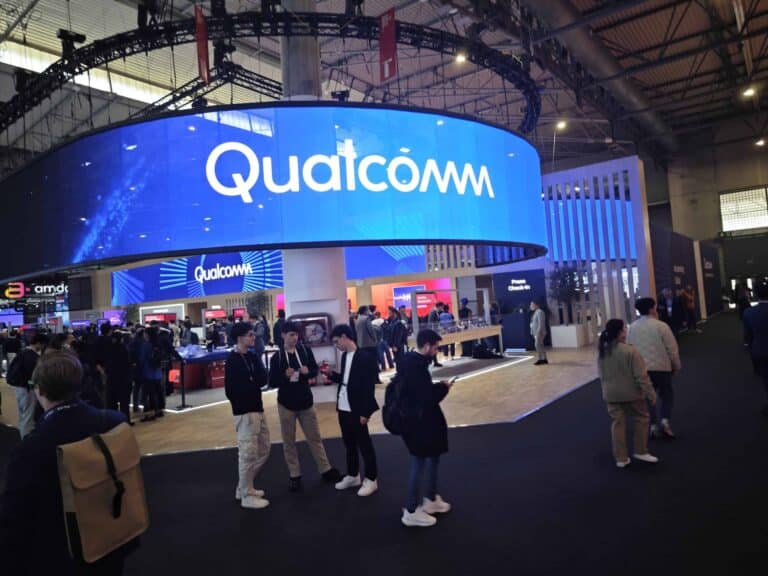Qualcomm and Arm are both showing interest in acquiring the British company Alphawave. The latter is mainly focused on developing and licensing IP related to chip designs.
The news has already provided Alphawave with a financial advantage. Shares rose by 48.3 percent after Qualcomm confirmed it was considering a bid for the company, which was founded in 2017.
On Monday, Alphawave’s market value was still around 708 million pounds (913 million dollars), but due to the new developments, this temporarily exceeded one billion pounds. The interest of the American company Qualcomm was confirmed on Tuesday, while earlier that day Reuters had exclusively reported that the British company Arm had also shown an interest in Alphawave, albeit a passing one.
Crucial technology for AI processing
According to sources familiar with the matter, Arm has attempted to acquire Alphawave in order to gain access to crucial technology for building its own AI processors. The crown jewel is its so-called serdes (serializer-deserializer) technology, which determines how quickly information can be transported to and from a chip. This is critical for heavy AI workloads, such as fine-tuning or AI training, because these often require thousands of interconnected chips to function smoothly.
The possession of strategic IP is a major competitive advantage among chip parties, because competitors often need a license or must take the costly path toward an alternative implementation. Broadcom, for example, is known for a similar affinity with data serialization and deserialization, which has helped the company win over customers such as Google and OpenAI for their AI chips. Nvidia has also developed its own variant in this area.
However, Arm has decided not to acquire Alphawave after initial talks with the company, according to two sources familiar with the situation. The exact reason for this has not been disclosed, but this opens the door for Qualcomm to possibly pursue its interest.
Complex relationships in the chip industry
The interest in Alphawave is taking place against a backdrop of tense relations between Qualcomm and Arm. The two chip companies recently faced each other in court over licensing conditions. In December 2024, Qualcomm achieved an important victory in this legal battle when a jury ruled that Qualcomm’s central processors were properly licensed under their agreement with Arm. If this legal conflict had gone differently, Qualcomm might have had to abandon the current Snapdragon Elite chips intended for Windows PCs.
The conflict with Arm arose after Qualcomm’s acquisition of chip startup Nuvia in 2021. Arm claimed that licensing terms had been violated because Qualcomm had bypassed the more expensive Nuvia license by using the technology under its own, cheaper Arm license. The problem became so serious that Arm even threatened to terminate the license agreement with Qualcomm. That would have been a step with far-reaching consequences for the smartphone industry, where Qualcomm is supreme outside the Apple domain.
At the same time, Arm has ambitions that go beyond just licensing its technology. Under the leadership of CEO Rene Haas, the company has also started to focus on developing complete chip designs, making it increasingly a competitor to customers such as Qualcomm. This has not yet led to major problems, but Arm has clearly left behind its role as ‘chip Switzerland’.
Strategic interests
It is also worth noting (as Reuters has already done) that Alphawave has a joint venture in China called WiseWave, which it operates with the Chinese investor Wise Road Capital. This investor was blacklisted by US officials last year due to national security concerns. Such ties with China could be a complicating factor in a takeover by US companies such as Qualcomm.
Although Arm itself does not seem to be willing to take over Alphawave, its parent company is. Last month, for example, Arm owner SoftBank announced it had taken over chip designer Ampere Computing for 6.5 billion dollars. Ampere specializes in CPUs based on Arm architecture and focuses on AI workloads. Although x86 is still dominant in server racks worldwide, Ampere chips are considered one of the most prominent Arm-based alternatives.
